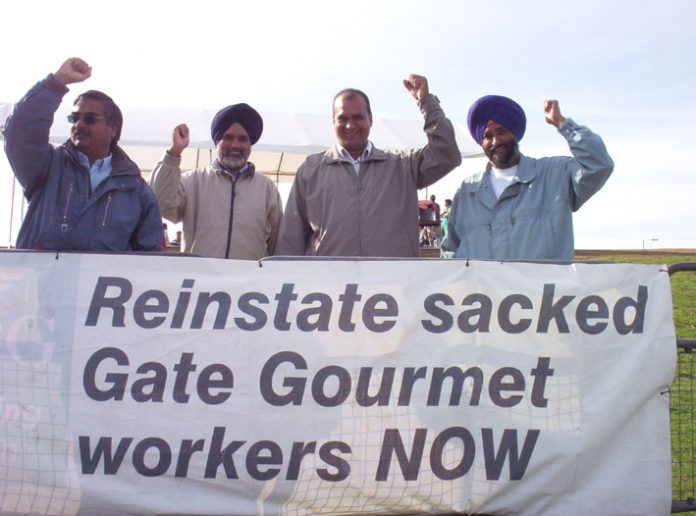AT the Labour Party conference, the trade unions and a large minority of Labour constituency parties defeated the Labour government on at least five major issues.
The conference voted for the repeal of the anti-union legislation that bans secondary action, for no further privatisation of the NHS, for the restoration of the link between the old age pension and increases in average wages, for more funds for local authorities to build more council houses, and as it did in 2004, for the renationalisation of the privatised railways.
In all these cases, Labour government ministers let it be known, that the government intended to ignore the Conference decisions of its own party and carry on with implementing Tory policies.
Government spokesmen then added, for good measure, that these defeats at the party conference underlined the need to eliminate the trade union block vote completely, so as to wrench the party out of the trade union hands that created it in the first place, after the Taff Vale judgement.
In fact, Blair spelt out his intention, in his conference speech, of completing the destruction of the Welfare State, during his third term as Prime Minister.
The defeat of his government at the Labour party conference was a reflection of a major movement to the left by the working class, and its determination to defeat Blair and preserve the Welfare State.
This determination was only passively reflected at the conference since the trade union leaders were determined not to sink the Blair boat, because they are preparing to welcome his political twin, Gordan Brown, as the next Prime Minister.
This could be seen over the issue of Iraq, which Blair was determined to lock out of the conference entirely.
After having passed a resolution at the TUC Congress calling for the government to adopt a timetable for withdrawal from Iraq, the union leaders stood by and gave Blair a hand, just watching as a motion on Iraq from a constituency party was ruled out of order, and tolerating the situation where nobody was allowed to speak on Iraq.
In fact, when the hired conference heavies ejected an 82 year old pensioner for shouting nonsense as Straw sought to spin his way around the Iraq issue, the whole of the country was outraged, while the trade union leaders kept mum to a man.
The conference proved that while a major clash between the trade unions and the Labour government over the Welfare State is inevitable, the trade union leaders are determined not to defeat the government.
However, a major battle over public sector final salary pensions, and the public sector retirement age is on hand, involving some two million workers.
As well, the Gate Gourmet struggle is poised to spread to the whole of BA. The TGWU leaders have already shown that they are willing to allow their members to be defeated rather than call secondary action to win the struggle.
The problem that the working class faces is that, as the decisive battles loom, it has a leadership that does not want to win the fight. The trade union leaders are resigned to defeat in advance, and aim to establish a new relationship with the government and the employers over the corpse of the Welfare State.
The working class cannot win with a leadership that is in fact an employers fifth column, or as Lenin described it, ‘Labour lieutenants of capital’.
The question of the hour for the working class is to rapidly build up the revolutionary leadership of the WRP, so that the coming battles, which will pose the working class bringing down the Blair government and going forward to workers power and a workers government, will be won and won decisively.

